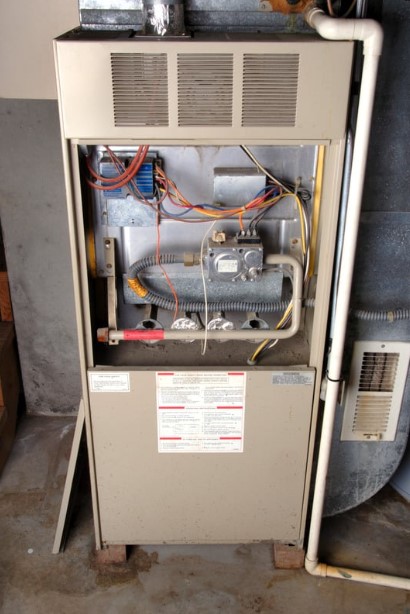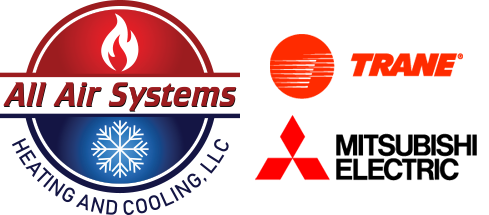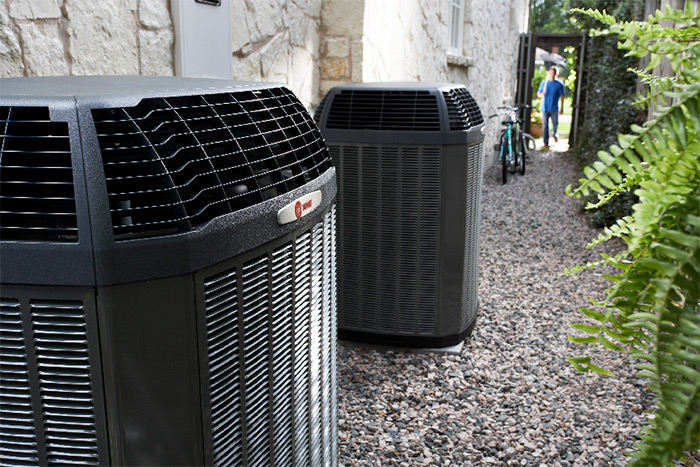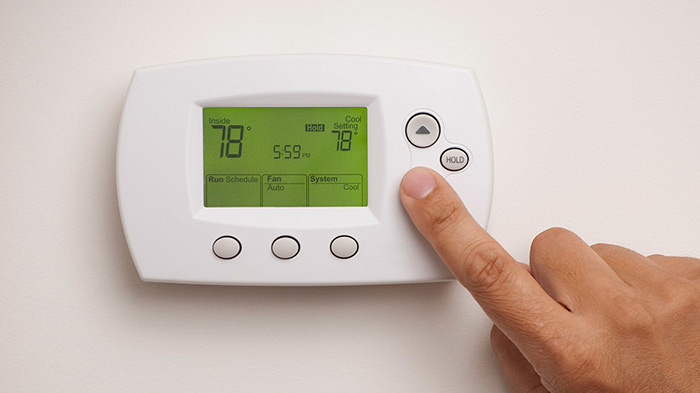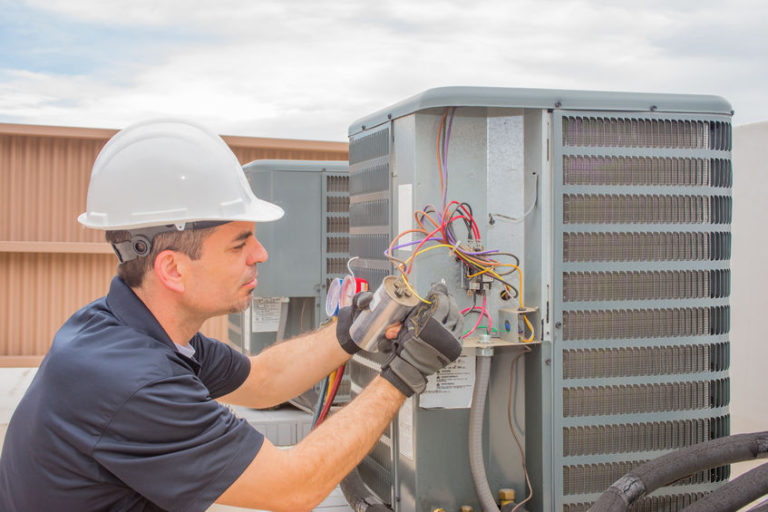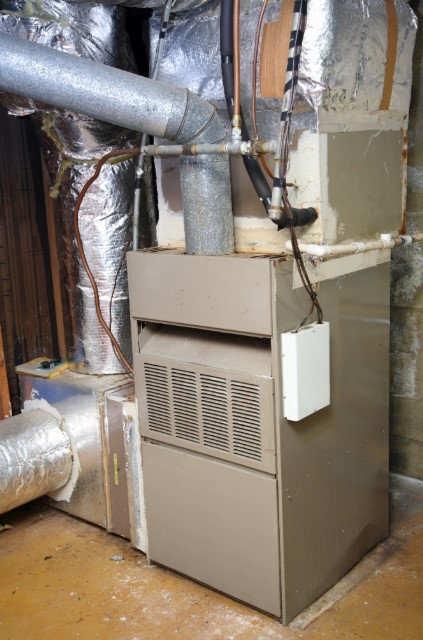
A furnace that doesn’t work right can make you feel uncomfortable in your home and increase your energy bills. At All Air Systems, we’ve seen all kinds of furnace problems across New Jersey, from new construction houses to well-loved older homes. Knowing the common issues and how to fix them can help keep your space warm and your heating costs down.
It might be a gas furnace that won’t light or a cracked heat exchanger, we’re here to guide you through solving these problems. Many furnace issues, like a clogged air filter or a pilot light that keeps going out, have simple solutions. By understanding these common setbacks and how to address them, you can ensure your furnace efficiently provides warm air all winter long.
Understanding Your Furnace
Before we get into common furnace problems, let’s start with the basics: how does your furnace actually work? Your furnace is the heart of your home’s heating system. Its job is to take in cold air, warm it up, and circulate the warm air through your house. Here’s a simple breakdown of the process:
- Cold Air Comes In: First, cold air from your home is drawn into the furnace. This is the air that’s about to get a nice, warm makeover.
- Filtering the Air: Next, this air passes through a filter. This step is crucial because dirty air filters can cause a lot of problems. The filter catches dust, dirt and allergens, making sure only clean air gets warmed up.
- Heating the Air: Once filtered, the air is ready to be heated. If you have a gas furnace, this is where the gas valve opens, allowing gas to flow into the burner and ignite, creating heat. The heat is then transferred to the air.
- Spreading Warmth: With the air now warm, it’s pushed out of the furnace by a fan and travels through ducts to spread warmth throughout your home.
- Regulating the Temperature: Your furnace knows when to start and stop thanks to the limit switch. It tracks the temperature and tells the furnace when your home is just the right temperature you set at the thermostat.
Now, let’s talk about the types of furnaces you might find in homes:
- Gas Furnaces: These are very common and use natural gas to create heat. They’re known for their efficiency and are connected to your home’s gas supply.
- Electric Furnaces: Instead of gas, these furnaces use electricity to heat an element that warms the air. These include increasingly popular units in New Jersey like heat pumps as well as ductless and ducted mini splits.
- Oil Furnaces: Less common nowadays, oil furnaces operate similarly to gas furnaces but use oil as the fuel. They require a tank to store the oil, which needs to be refilled regularly.
Understanding how your furnace works and what type you have is the first step in keeping your heating system running smoothly. Remember, regular checks and cleaning, especially of those dirty air filters, can help prevent many common issues.
Taking Care of Your Furnace Through Preventive Measures and Regular Maintenance
Maintaining a warm and comfortable home during the colder months relies heavily on the health of your furnace. To ensure it operates efficiently and safely, adopting a routine of preventive measures and regular maintenance is crucial. Here’s how you can keep your heating system in top shape.
The Crucial Role of Annual Inspections
Annual maintenance inspections by a qualified technician at All Air Systems Heating and Cooling play a vital role in the longevity and efficiency of your furnace. These inspections are akin to a comprehensive health check-up for your HVAC system. They allow professionals to identify and address minor issues before they escalate into significant problems. During these inspections, our technicians look for signs of wear and tear, check the condition of the blower motor, and ensure the furnace’s safety features, like the faulty flame sensor, are functioning correctly. Catching a problem like a clogged filter early can also help in preventing strain on your system and save you from higher energy bills down the line.
DIY Maintenance: Keeping Your Furnace in Shape
In addition to professional inspections, there are several maintenance tasks that homeowners can undertake to contribute to their furnace’s efficiency and longevity. Keeping the area around your furnace clean and free of clutter ensures proper airflow and reduces the risk of fire. Regularly checking your furnace’s air filter for clogs is another simple yet effective step. A clogged filter can force your furnace to work harder, leading to increased wear on components like the blower motor. Listening for unusual noises can also alert you to potential issues within your HVAC system. These sounds often indicate developing problems that, if addressed early, can save you from more complicated repairs later.
Knowing When to Call in the Professionals
Homeowners may be able to handle some of the tasks of furnace maintenance, but there are times when the expertise of a professional is necessary. If you encounter persistent issues such as uneven heating throughout your home, strange smells or sounds that don’t resolve with basic troubleshooting, or concerns about the operation of critical components like the flame sensor, it’s time to seek professional help. Attempting to repair complex or safety-related issues on your own can lead to further damage to your system or pose significant risks to your safety.
Common Furnace Problems and How to Address Them
A well-maintained furnace is key to a warm and comfortable home during the cold months. However, furnaces can encounter various issues due to neglect, wear and tear, or other factors. Understanding these common problems can help you quickly address them and maintain your home’s warmth and safety.
Lack of Maintenance
Signs of Neglect
A furnace that hasn’t been regularly serviced may start to show signs such as inefficient heating, higher energy bills, or frequent breakdowns.
Preventative Measures
Scheduling annual inspections and tune-ups by a professional can keep your furnace running smoothly and efficiently.
Dirty or Clogged Filters
Impact on Efficiency and Air Quality
A dirty air filter restricts airflow, causing the furnace to work harder, which can lead to increased energy consumption and poor air quality inside your home.
How Often to Replace or Clean Filters
It’s recommended to check your filters monthly and replace or clean them at least every three months, or more often if you have pets or allergies.
Wear and Tear of Components
Identifying Worn-Out Parts
Over time, components like belts and bearings can wear out, leading to inefficiencies or even breakdowns.
When to Call a Professional for Replacement
If you notice any unusual sounds or your furnace isn’t working as it should, it’s time to call in a professional to inspect and replace any worn-out parts.
Pilot Control or Electric Ignition Issues
Symptoms of Ignition Problems
If your furnace fails to heat up or frequently goes out, there could be an issue with the pilot light or electric ignition.
DIY Troubleshooting Tips
Check to ensure the pilot light is on and the furnace is receiving power. For more detailed steps, refer to your furnace’s manual or contact a professional.
Thermostat Malfunctions
Distinguishing Between Furnace and Thermostat Issues
If your heating system is not working correctly, first check if the problem lies with a malfunctioning thermostat rather than the furnace itself.
Simple Checks and Fixes
Ensure the thermostat is set to “heat” and the temperature is set correctly. If problems persist, it might need replacing.
Unusual Noises
What Different Sounds May Indicate
Banging, whistling, or grinding noises can indicate various issues, from a dirty air filter to a mechanical problem.
When Noise Signifies a Need for Urgent Repair
Any sudden or loud noises should be investigated by a professional immediately to prevent further damage.
Heating Inconsistency or Insufficiency
Causes of Uneven Heating
Blocked vents, a dirty filter, or an incorrectly sized furnace can cause uneven heating in your home.
Solutions to Improve Heat Distribution
Regular maintenance, ensuring vents are open and unblocked, and using fans to circulate air can help distribute heat more evenly.
Furnace Doesn’t Turn On
Potential Electrical Issues
A tripped circuit breaker or blown fuse could be preventing your furnace from turning on.
Safety Precautions Before Attempting Fixes
Always turn off the power to your furnace at the breaker box before inspecting or attempting any repairs.
By understanding these common furnace problems and how to address them, you can ensure your heating system remains efficient and reliable throughout the colder months. Remember, when in doubt, it’s always best to consult with a professional to safely and effectively resolve furnace issues.
Ensuring a Warm and Safe Home with All Air Systems
Keeping your furnace in top condition requires a balance of DIY maintenance efforts and professional oversight. From replacing dirty air filters to addressing more complex issues like ignition problems or unusual noises, understanding the common furnace problems is crucial for a comfortable, safe, and warm home during the cold seasons.
While some tasks can be managed independently, enlisting the help of professionals like All Air Systems based in Keyport, New Jersey can prevent minor issues from escalating into major repairs. We serve all of Monmouth and Ocean County, New Jersey and our expertise ensures that your heating system not only runs efficiently but also extends its lifespan, offering peace of mind and protection against the chill of winter.
